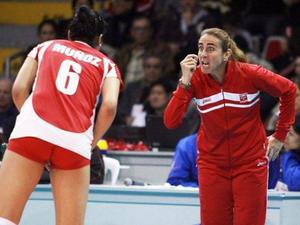One of the most effective tools to make true change in the world seems to be something that people avoid just based on being too busy with their lives and not willing to change a few things in their life. That simple process is that big little thing called boycotting, which seems simple enough, yet something typically governing bodies make effective rather than individuals. And somehow we still hear the cries of individuals lamenting things wrong with television, movies, inferior products and general corrupt actions by corporations who pretty much run the show. That’s not to say that there aren’t some small groups that have made (and make) ripples by boycotting certain things. When it comes to true action, though, the individual increasingly expects someone else to do something…just based on time factors when longtime habits make the general populace unwilling to boycott a show or product.
Juxtaposed with the larger boycotts of history–it might make boycotting from individual people probably appear to be ineffective. That isn’t really true, and the larger ones from history really didn’t make all that much difference other than just making a statement on a current situation. One of the more recent cases in point was when then President Carter boycotted the Summer Olympics that were being held in Moscow in 1980. This was due to the Soviets invading Afghanistan the previous December and Carter’s demands they withdraw. Nobody really expected that a real boycott could happen with something untouchable as the Olympics.
Well, in this scenario, President Carter showed some forceful behavior he didn’t show in other endeavors during his Presidency. After a month-long ultimatum for Moscow to withdraw from Afghanistan, Carter ordered that America would boycott the Olympics that July. As much as you think Moscow was stunned, they hardly batted an eye over America’s decision to sit it out. In fact, they seemed to be happy about it so they’d actually have a chance to be the leader in the medal count for at least one Summer Olympics. And despite our boycott intended to make a difference in getting the Soviets out of Afghanistan–it was all for want. The Soviets ended up occupying Afghanistan for the next eight years while we and they threw testy and vitriolic comments back and forth.
The boycott didn’t really help much else either. It not only made us look bad in the world community (fortunately repaired four years later at the 1984 Summer Olympics in Los Angeles), but it almost financially ruined a major TV network otherwise known as NBC. In the days long before NBC ended up getting a monopoly on broadcasting the Olympics in the 21st century, they were all ready to (for the first time) broadcast these Summer Games with millions of dollars invested. Due to the American boycott, there wasn’t any reason for NBC to broadcast other countries sweeping the medals, so they stayed home. For John Q. Public, the emotion of the “Miracle on Ice” at the Winter Olympics that February on ABC was enough to sustain them clear into 1984 anyway.
This was probably the largest boycott America as a whole ever managed to pull off. Perhaps it set the precedent that boycotts end up doing more harm than good. But it’s too bad that stigma stuck by the 1990’s just when a lot of TV and movies were starting to change in dishing out more sex and violence in near PG fare. At least a dialogue by concerned parents about using the process of boycotts began around that time...
The confusion in boycotting sex and violence in media…and some boycotts that actually worked…
I remember when some of the first TV network shows started upping the ante in violence, profanity and sex around the early to mid-1990’s. A lot of adults who grew up in an era when you didn’t see much to any of that on TV realized that they didn’t want their kids seeing those things and started contemplating, for the first time in TV history, the boycotting of sponsors for some shows. This seemed to hit a peak around the late 90’s when the old family hour on network TV was starting to slowly disappear one show (and time-slot move) at a time. Of course, this wasn’t something that was being coordinated through any sense of en masse groups getting together to make things move and shake. At the time, I remember it being discussed in Sunday newspaper family publications such as USA Weekend where concerned reporters who had kids of their own wrote articles about it and gave out directions to loyal readers on how to make a difference.
By the time the internet era started, boycotting obviously became a much easier process to get organized. Once the ability was here by the 2000’s, though, most people were getting too used to the changing landscape of TV…or just getting too busy during a time when the economy was going into the loo. Parents were starting to work two jobs just to make ends meet–plus trying to raise a family besides. When you’re juggling everything, paying attention to what’s shaping the brains of the new generation on TV probably isn’t a top priority as it should be.
Yes, tiredness killed the boycott potential.
Well, let’s not get too many discouraging thoughts here. There has been some successful boycotting done during the internet era. None of them relate to boycotting sponsors so a certain show would tone down sex and violence in prime-time, as much as some people would want to hear that. Instead, some of the most successful group boycotts have been against food and the companies who continually put ingredients in their food that can potentially make people sick. You may have heard about the famous Nestle boycott that actually started already in 1977 and resumed periodically through the last thirty years. This one was a protest against Nestle marketing breast milk substitutes overseas that make babies in poor families ill or can cause death. Despite the boycott still going now, the powerful organizations behind it made Nestle look into changing their tactics.
More recently, you have a recent boycott of Cheetos by parents who think the makers of the chips that turn your fingers orange have too violent of an ad campaign on TV. Perhaps here you finally have parents taking action to remove things objectionable from the airwaves. If they can do this to Frito-Lay, though, it’s still a mystery why they don’t do it for TV shows or movies. It shouldn’t be that tough to just not watch a certain TV show or movie (or not buy a product that’s sponsoring a TV show), right?
I guess the answer to that is: When someone has kids that want to watch something (and you’re too tired from working all day)–the parent just relents out of pressure. It’s an understatement to say that it isn’t easy raising a family today and keeping up with all the dangers the kids can be fed.
Ironically, a new, proposed American boycott of this summer’s Summer Olympics in Beijing could affect the younger generation as much as any piece of pop culture…
What would happen if President Bush boycotts the Summer Olympics this summer…
While we won’t expect President Bush to listen to any suggestion uttered by Hillary Clinton, if pressure mounts to boycott the Summer Olympics in Beijing, China this year due to human rights issues–it’ll end up setting off the same dominos the one in 1980 did. If we do boycott, expect China to do exactly what Moscow did in 1980 and not even bat an eye. Then expect tensions with China to get even worse over the next four years that’ll only ruin goodwill when our athletes brush shoulders with them in London in 2012.
Sure, this may be one of the most complicated decisions to make for an Olympics. When it’s all about brotherhood and sisterhood in meeting for the glory of sports, such a concept should override anything considered evil. After all, America still attended the 1936 Berlin Olympics when we were full aware of Hitler’s emerging nefarious plans. There was pressure then from outside groups to boycott it, but Franklin Roosevelt wisely didn’t capitulate. Hillary Clinton is presumably smart enough to learn from history far better than President Bush has.
A year away from the time of this article hopefully found us attending in Beijing and setting an example for this generation’s kids that boycotting shouldn’t reach into the Olympic territory. If boycotting has to exist within the government–then let them gives tips to the American populace on how to do it easier to fight back against things that cause more harm here within our own borders…




